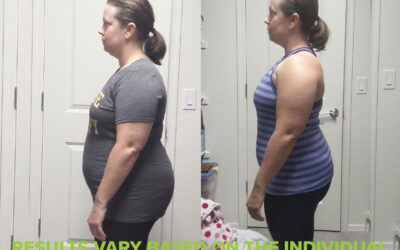Athletes at every level know that the difference between a good performance and a great one often lies in the details. While training regimens and practice schedules take center stage, one essential element often goes underappreciated: nutrition. The food you consume has a profound impact on energy levels, recovery, and overall performance. But here’s the catch—generic meal plans and cookie-cutter advice aren’t enough to optimize athletic performance. At Personalized Nutrition Concepts, I’ve spent nearly three decades helping individuals tailor their nutrition to achieve their best, whether on the field, in the gym, or in daily life.
This blog explores how personalized nutrition can unlock peak athletic performance, enhance recovery, and promote overall health. With the right strategies, you can take your game to the next level while building a foundation for sustainable success.
The Connection Between Nutrition and Performance
Food is fuel. But not all fuel is created equal. Athletes have unique needs depending on their sport, training intensity, and individual physiology. Generic recommendations may overlook critical factors like macronutrient balance, hydration, and micronutrient requirements. Personalized nutrition takes these variables into account, delivering a tailored approach that aligns with your goals and lifestyle.
For example, an endurance athlete training for a marathon will have vastly different nutritional needs than a sprinter or weightlifter. The marathon runner requires a steady supply of complex carbohydrates for sustained energy, while the sprinter may focus on optimizing protein intake to support muscle repair and growth. By addressing these specific needs, personalized nutrition ensures you’re not just eating well but eating right for your body and your sport.
Why One-Size-Fits-All Diets Fall Short
Generic diets often fail athletes for several reasons. First, they don’t consider individual metabolism. Some people burn through calories quickly, while others store energy more efficiently. Understanding your metabolic rate is crucial for optimizing energy intake and expenditure.
Second, these diets rarely account for the timing of meals and snacks. For athletes, when you eat is just as important as what you eat. Consuming the right nutrients at the right time can enhance performance and recovery. Finally, one-size-fits-all plans overlook food sensitivities and preferences, which can impact digestion and overall well-being. At Personalized Nutrition Concepts, we specialize in creating tailored plans that address these nuances, setting athletes up for success both in training and competition.
The Role of Macronutrients in Athletic Performance
Macronutrients—carbohydrates, proteins, and fats—are the building blocks of an athlete’s diet. Each plays a specific role in supporting performance:
Carbohydrates: The primary energy source for high-intensity exercise, carbohydrates are stored as glycogen in muscles and the liver. Maintaining adequate glycogen levels is crucial for endurance and stamina.
Proteins: Essential for muscle repair and growth, proteins also play a role in immune function and recovery. Athletes should aim for high-quality protein sources such as lean meats, eggs, and plant-based options like lentils and tofu.
Fats: Often overlooked, healthy fats provide a long-lasting energy source and support hormonal balance. Incorporating foods like avocados, nuts, and fatty fish can improve overall health and performance.
The right balance of these macronutrients depends on your training goals and body composition. A personalized plan ensures you’re meeting your specific needs without over- or under-consuming any nutrient.
Timing Is Everything
Nutrient timing is a game-changer for athletes. Eating the right foods before, during, and after exercise can significantly impact performance and recovery:
Pre-Workout: A combination of complex carbohydrates and a small amount of protein provides sustained energy and prepares your muscles for activity.
During Exercise: For prolonged activities, consuming easily digestible carbohydrates, such as a sports drink or energy gel, helps maintain energy levels.
Post-Workout: This is the critical window for recovery. Consuming a mix of protein and carbohydrates within 30-60 minutes after exercise replenishes glycogen stores and supports muscle repair.
By aligning your meals and snacks with your training schedule, you can maximize your efforts and achieve better results.
Recovery: The Unsung Hero of Athletic Success
Recovery is where the real gains happen. Without proper recovery, your body can’t repair and rebuild effectively, leading to fatigue and increased risk of injury. Nutrition plays a vital role in this process. Antioxidant-rich foods like berries and leafy greens reduce inflammation, while high-quality protein sources support muscle repair.
Hydration is equally important. Dehydration can impair performance and delay recovery, so athletes should prioritize water intake and consider electrolyte-rich beverages after intense workouts. At Personalized Nutrition Concepts, we help clients develop recovery-focused meal plans that optimize hydration, nutrient intake, and overall well-being.
Real-Life Transformations
I’ve had the privilege of working with athletes from diverse backgrounds, helping them unlock their full potential through personalized nutrition. One client, a collegiate soccer player, struggled with energy dips during matches. By adjusting her carbohydrate intake and focusing on pre-game meals, she noticed a significant improvement in her endurance and overall performance.
Another client, a triathlete, faced recurring muscle soreness and slow recovery times. By incorporating more anti-inflammatory foods and timing his protein intake around workouts, he was able to recover faster and train more effectively. These success stories highlight the power of personalized nutrition in achieving athletic goals.



0 Comments